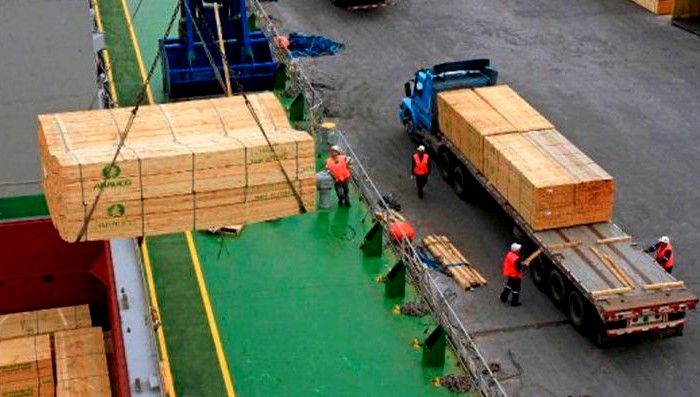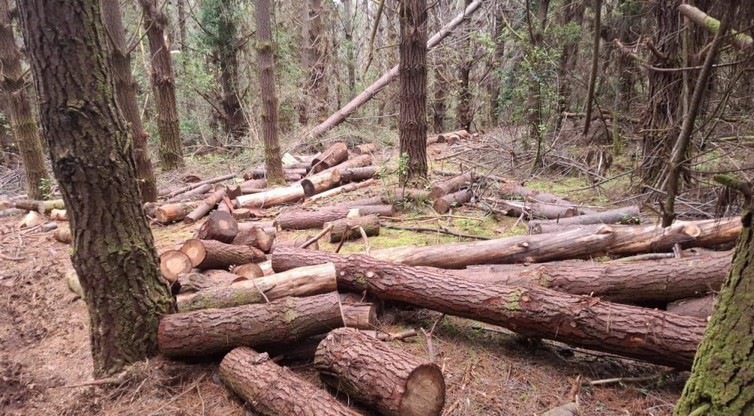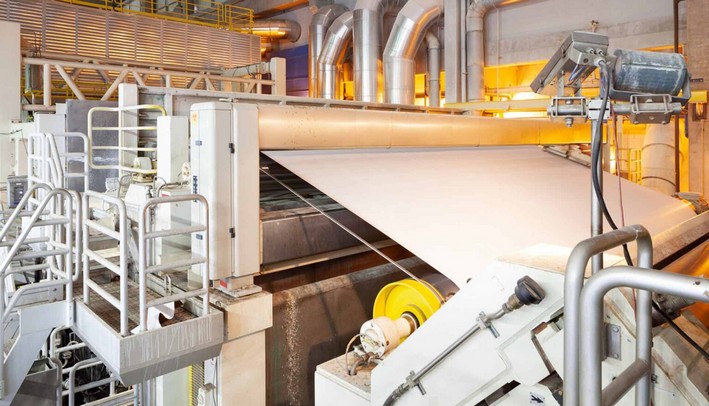U.S. Tariffs: The Urgency of Listening to Chilean Forestry SMEs
By Ignacio Vera Izquierdo, General Manager of Forestal Santa Blanca
The recent imposition of tariffs by the United States on wood and its derivatives, which took effect on October 14 with rates of 10% for softwood and sawn timber and 25% for manufactured goods, has set off all alarms in the Chilean forestry sector. Projections that these rates could escalate to 30% and 50% in January 2026, respectively, if no agreement is reached, add a layer of uncertainty that the industry, and especially its smaller players, cannot afford.
Public discussion has understandably focused on macroeconomic figures and the position of large conglomerates. However, this approach has a crucial blind spot: small and medium-sized enterprises (SMEs).
The United States is the second most important destination for our forestry exports, accounting for 18.4% of total shipments, equivalent to over US$1.06 billion in 2024. The Undersecretariat of International Economic Relations (Subrei) estimates that 97.9% of these exports will be affected. While diversified companies like CMPC and Arauco can cushion the blow, partly due to having operations in the North American country, SMEs lack that absorption capacity.
The president of the Chilean Wood Corporation (Corma) has been categorical: "For companies with margins over 10%, a 10% cut is a lot in proportion to the margin." This means that, for many SMEs operating on narrow margins, absorbing this tariff is unviable. In the last five years, the sector has already seen the closure of 169 sawmills, a symptom of a structural crisis that the tariffs will accelerate.
This new difficulty comes at the worst time. The forestry sector is already severely constrained by rural violence, timber theft, fires, and rising labor and energy costs. This combination of factors, coupled with the contraction in domestic demand, creates a "perfect storm" for small and medium-sized entrepreneurs.
Ignacio Vera I.
The impact of the tariffs is not limited to a drop in balance sheets; it is deeply social and territorial. The Association of Forestry Contractors (Acoforag) has warned that this measure will directly affect employment, a problem that has already resulted in nearly 3,500 jobs lost in the last decade and the disappearance of over 50 contractors. For many communities, subsistence depends on these small and medium-sized players.
We risk facing a "Huachipato case" in the forestry sector if we ignore SMEs. If their difficulties are not made visible and specific support measures are not designed, we could see mass closures and the disappearance of local suppliers.
Faced with this scenario, the response must be bifocal:
Strong and Strategic Diplomacy: We must persevere in bilateral negotiations. It is key to remember that our products are complementary to American ones and come from sustainably managed forests. The Government has established a working group led by the Ministry of Foreign Affairs, a necessary step to coordinate an agile diplomatic response.
Measures to Stimulate New Investments, Growth, and Reduce Bureaucracy: Diplomacy is not enough. An internal economic environment that boosts activity and strengthens SMEs is required so they can diversify and withstand the external shock.
Investment Stimulus: Clear mechanisms must be implemented to facilitate SMEs' access to capital, allowing them to modernize processes, diversify their productive base, and seek new international markets.
Bureaucracy Reduction: The processing of projects and permits cannot continue to take years. It is urgent to reduce the "permitting burden" that stifles entrepreneurs, freeing up resources and time for SMEs to focus on their competitiveness, as is being worked on with initiatives like the Framework Law for Sectoral Authorizations and the Super platform.
Promotion of Domestic Use: Boosting the sector's growth in the domestic market is vital, as has been proposed with the promotion of wood use in construction. This generates the necessary critical mass to invest and creates local employment.
The tariff crisis is an opportunity, albeit a painful one, to rethink the forestry model. It is time to stop ignoring SMEs, to strengthen their resilience through a pro-investment environment free of bureaucratic hurdles, and to ensure that the voice of small and medium-sized producers is heard at every negotiation table. Healing the sector from its foundation is the first step to turning this threat into an opportunity for development with social and territorial legitimacy.
















